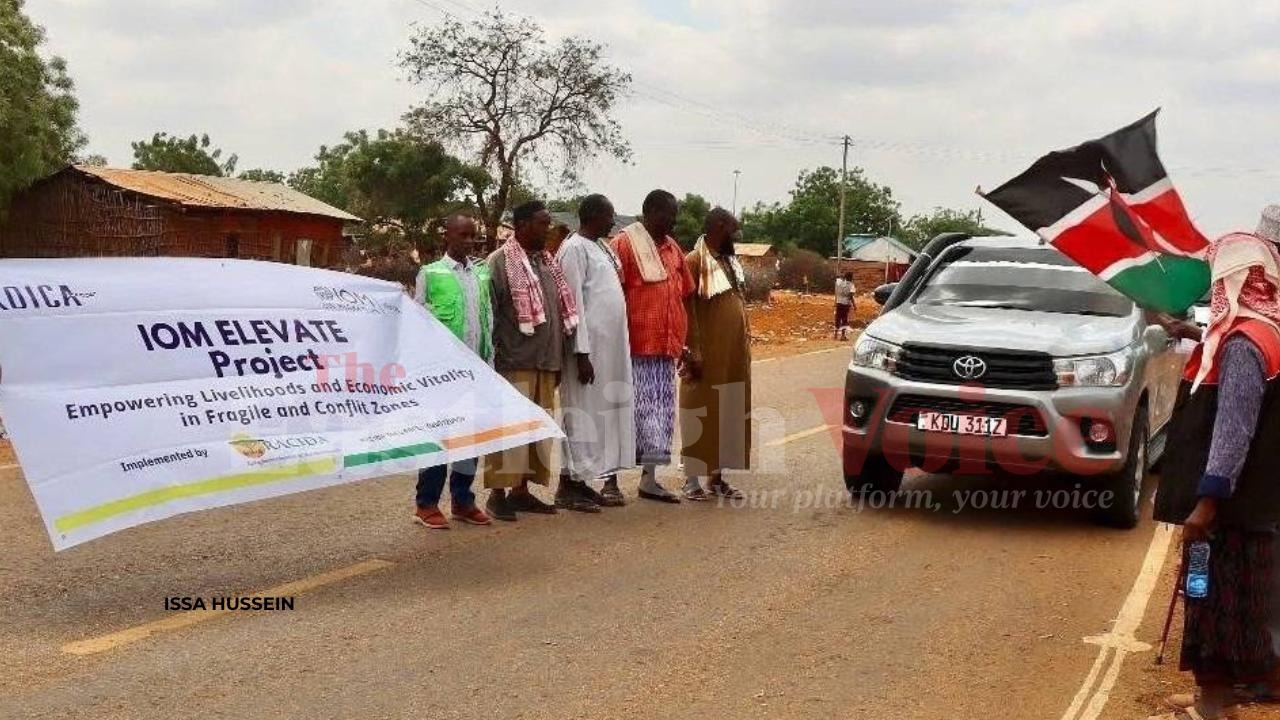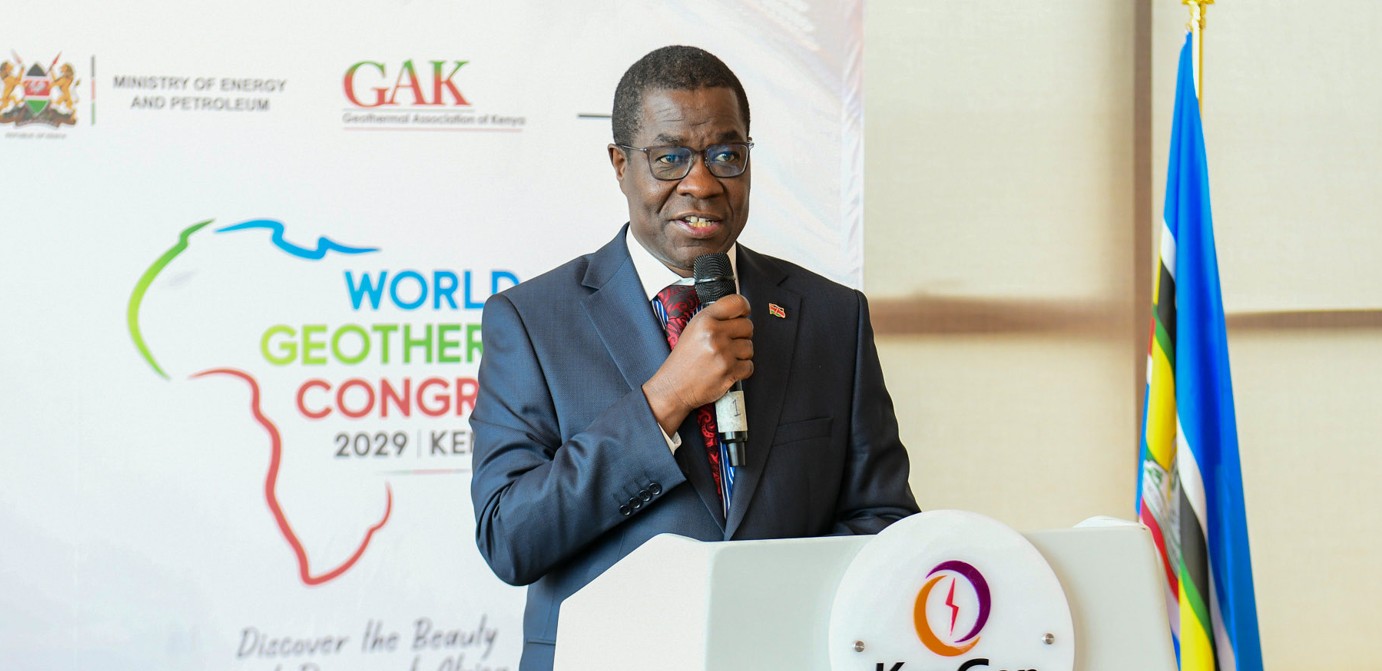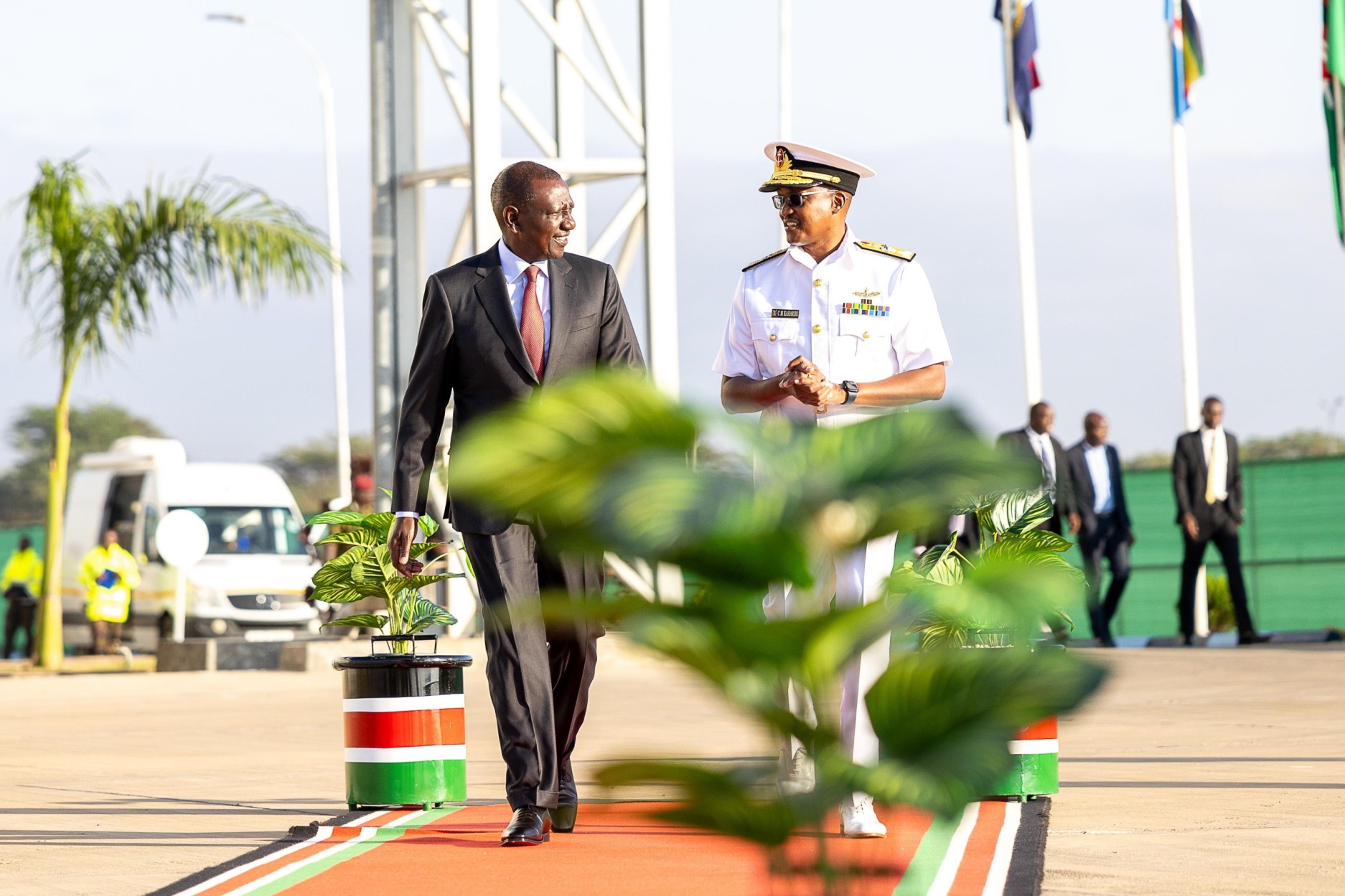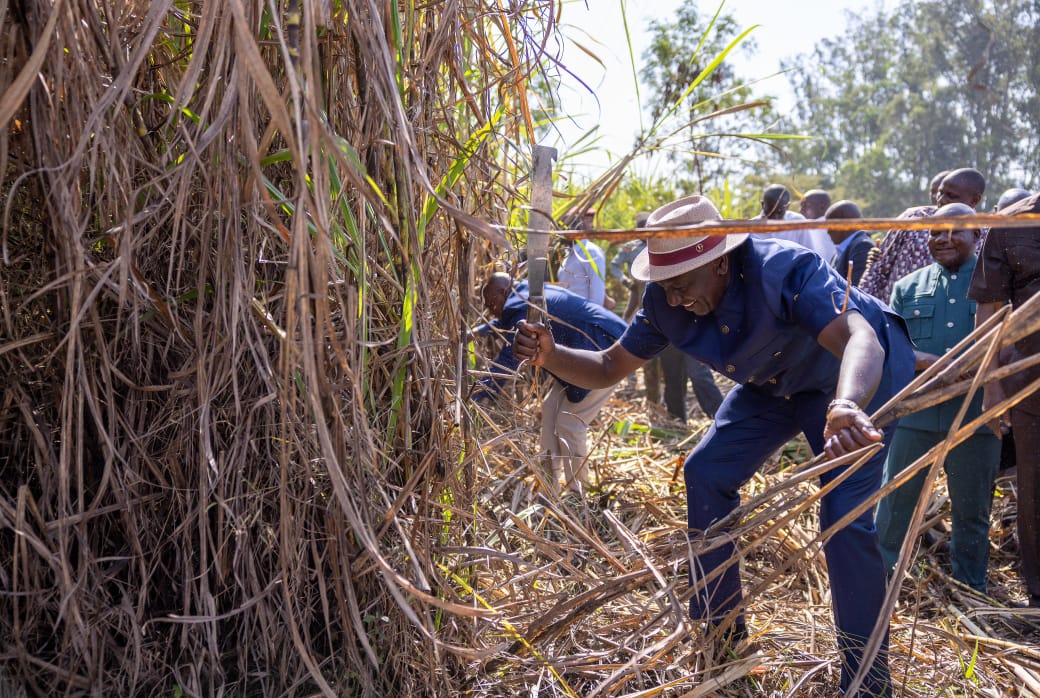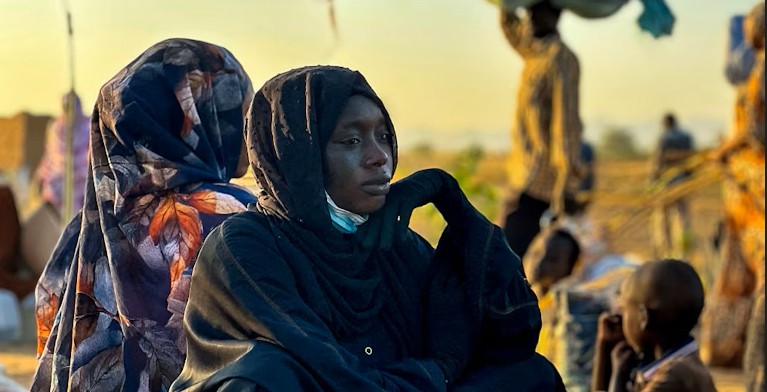Elevate Kiswahili to its rightful place, lobbyists tell gov’t, stakeholders
The call to give Kiswahili its befitting status in the country has been made ahead of World Kiswahili Language Day, which is celebrated on July 7.
New calls to have Kiswahili promoted and recognised as the foremost language that Kenyans should be using in official communication and public spaces have been made by organisations and individuals promoting the language in Kenya and beyond.
In a press conference at Ufungamano House, the lobby that was led by Kamukunji MP Yusuf Hassan, renowned linguist and writer Prof. Kimani Njogu, and celebrated Swahili poet Nuhu Bakari made calls to President William Ruto's administration and all devolved units to promote the use of Kiswahili through its use in all official functions and official correspondences.
More To Read
- Kenyans to replace lost IDs for free as Government gazettes six-month waiver on fees charged
- Raila Odinga mastered the art of political compromise for the good of Kenya
- Kenya appoints Severine Luyali as new Chief of Protocol
- Court told President Ruto not complainant in X post case against David Mokaya
- President Ruto outlines four Raila-inspired pillars to drive Kenya’s growth
- Raila Odinga’s life offers five key lessons to guide Kenya’s future - President Ruto
Ahead of World Kiswahili Language Day on July 7, there has been a call to elevate Kiswahili to its rightful place in the nation.
MP Yusuf, who led the calls, said the government and all stakeholders involved have a greater role in expanding Kiswahili's place in the country.
"The promotion of Kiswahili as the foremost language that should be used by Kenyans in all forms of communication should not be left entirely to the government. We want all stakeholders to join hands with us in ensuring that the language gets to be the preferred one when it comes to communication," said Yusuf.
Yusuf decried the lack of a government-constituted council that handles matters related to the promotion of the Kiswahili language.
"We don't even have Baraza La Kiswahili." I have twice tabled a motion to have such a body created, but it hasn't gone through yet. It is therefore our role to take the matter of promoting Kiswahili with the seriousness it deserves," said Yusuf.
He referred to state officials' obsessive use of English during functions and in office spaces as something that borders on colonial hangover.
"We should liberate our minds and stop promoting English, which is a colonial language. We should promote Kiswahili in all spheres, just like other countries that give first preference to their local languages," he added.
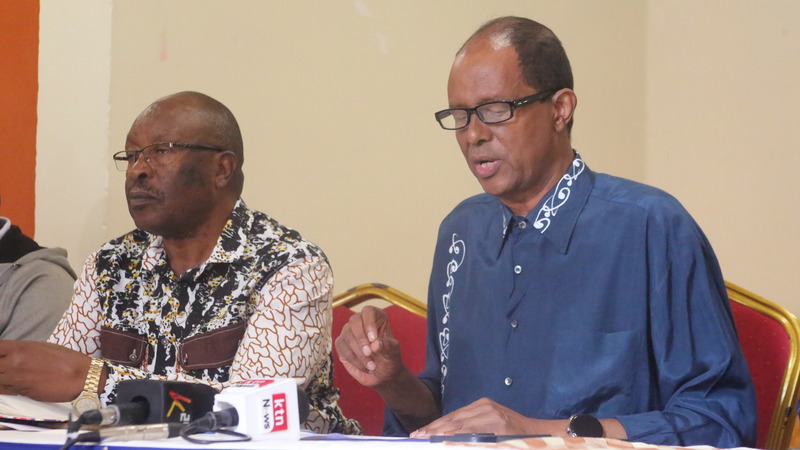 Renowned Kiswahili Literature Author Prof. Kimani Njogu, Kamukunji MP Yusuf Hassan and other Kiswahili promotion lobbyists during a press briefing at Ufungamano House on Saturday. (Photo: Barack Oduor)
Renowned Kiswahili Literature Author Prof. Kimani Njogu, Kamukunji MP Yusuf Hassan and other Kiswahili promotion lobbyists during a press briefing at Ufungamano House on Saturday. (Photo: Barack Oduor)
He blamed the obsession with using English as the reason why many fellow lawmakers find it difficult to issue statements or give their parliamentary speeches in Kiswahili.
The lobby now wants the government to use the upcoming official day of celebrating the Kiswahili language to announce the formation of the authority concerned with promoting the language.
Prof. Kimani Njogu said the yet-to-be-formed council will be pivotal in promoting all matters related to the Kiswahili language and will also act as an engine for creating employment in linguistic circles while supporting national cohesion and harmony.
Njogu argues that, similar to other countries that use their indigenous languages for official purposes, all foreigners seeking residency and employment in the country should undergo a basic Kiswahili test to gauge their appreciation of the language.
"We should subject foreigners to Kiswahili tests to ground the language's place and importance." I also ask President Ruto to use Kiswahili in his official speeches instead of English if he wants to reach as many Kenyans as possible," said Njogu.
Poet Bakari Nuhu wondered why Kenyans aren't proud of their language and instead use English as their primary language.
"We all know that English is a colonial language, yet we continue to give preference to it instead of Kiswahili. Why are we not proud of our own?" Nuhu posed.
He wants to change the parliamentary standing orders to permit lawmakers to speak in Kiswahili throughout all sessions.
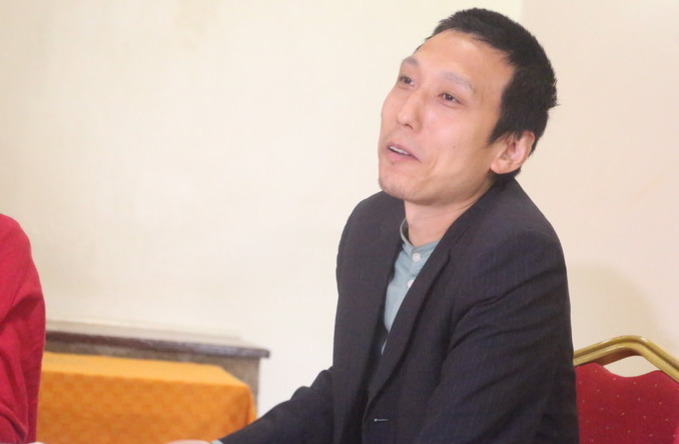 Kiswahili Lecturer and Researcher Yuning Shen of Zhejiang Teachers College in China speaks during the press briefing at Ufungamano House in Nairobi on April 6, 2024. (Photo: Barack Oduor)
Kiswahili Lecturer and Researcher Yuning Shen of Zhejiang Teachers College in China speaks during the press briefing at Ufungamano House in Nairobi on April 6, 2024. (Photo: Barack Oduor)
The lobbyists, who also comprised students, language enthusiasts, and Kiswahili lecturers Yuning Shen of Zhejiang Teachers College in China and Dr Mary Ndung'u of the University of Nairobi, also made a rallying call to the Kenya Institute of Curriculum Development (KICD) to ensure that learning Kiswahili is compulsory in all stages of education in the country.
"Making Kiswahili a compulsory language of study in all stages of education in the country will preserve Kenyans' national pride and identity while also enabling the future generation to learn the language effectively," said Nuhu.
They mentioned countries like China, Germany, Japan, and America that have promoted the use of their indigenous language and are ahead in technological advancement and economic emancipation.
The lobby comprised Chama cha Kiswahili cha Taifa (CHAKITA), Chama cha Ukuzaji wa Kiswahili Duniani (CHAUKIDU), Chama Cha Wanahabari Wa Kiswahili (CHAWAKI), amongst others.
Top Stories Today



